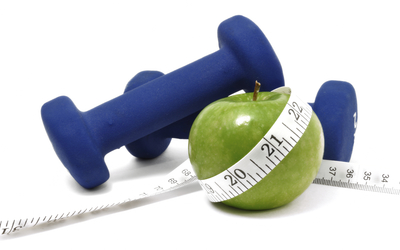Diet vs. Fitness: Which One will Get the Job Done?
Ok, so you know that diet and exercise are both essential to your wellness in general, but what about those times when you want to work on something specific? Let’s be honest; you don’t always have the time or ability to take care of your entire wellbeing, so how do you get better and faster results when you need to drop a dress size or up your energy levels? We’ve compiled a list of five common health focuses you might be interested in, and pitted diet and fitness against each other to see which one reigns supreme.
1. Weight Loss
Although both are obviously the way forward, dieting definitely has the edge here. Tim Church, MD, the director of preventive medicine research at Louisiana State University, explains, ‘It’s clear that you need to restrict calories in your diet to lose weight—and exercise to keep it off. Most people who exercise to lose weight and don’t restrict calories shed only 2-3% of their weight over six to 12 months.’ It’s just easier to deny yourself 500 calories a day than burn that much through your fitness regime. If you consume a low-calorie dense diet of less fat, more produce and adding water to recipes, you can easily consume 230 to 396 fewer calories a day says a study published in the journal Appetite.
2. Energy
Having enough energy is hugely important to your health and overall sense of wellbeing, as you need it to exercise and basically function. However, even though exercise can give you a good surge of energy diet reigns supreme here as eating the right way throughout the day will give you a steadier supply of fuel. According to nutritional biochemist Shawn M. Talbott, PhD, author of The Secret of Vigour, ‘With proper nutrition and well-timed meals, you’ll keep your blood sugar balanced. This is important, since blood sugar spikes and drops are a leading cause of energy fluctuations.’
3. Heart Health
In this wellness area, you should focus on exercise. A study published in the journal Circulation, which was eight years in the making, found that being physically fit reduces your risk of dying from heart disease. Lead author Martha Gulati, MD, associate professor of medicine at Ohio State University, notes, ‘Being fit is more important than weight or body mass index for heart health.’ This is because exercise lowers your weight, alleviates your stress, reduces your cholesterol, and increases your blood flow – all of which are important for heart health.
4. Brain Power
Exercise is the method of choice for those who want to keep their mind sharp. Gary W. Small, MD, the director of the UCLA Longevity Centre and co-author of The Alzheimer’s Prevention Programme, comments, ‘When people exercise, the areas that control memory, thinking, and attention increase in the brain. Regular exercisers also have less of the abnormal protein deposits in the brain that have been linked to Alzheimer’s.’ Diet still has an impact on your mental wellness, Small adds, ‘It’s just that the effects of exercise are more pronounced based on the evidence we have now.’
5. Libido
When it comes to sex, exercise wins out every time. Heather Hausenblas, an associate professor of health sciences at Jacksonville University, argues, ‘Exercise is one of the best ways to improve body image, which affects libido.’ Your libido is affected by mood and self-esteem, both of which can be improved via exercise. For better sex, Lori Brotto, an associate professor in the department of obstetrics and gynaecology at the University of British Columbia, advises yoga and strength-training exercises.


Comments are closed.